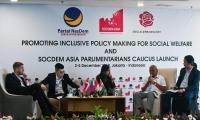Thailand
Thailand Struggles for Democracy Under Military Rule
Although Thailand is de facto ruled by an authoritarian military government with little influence from the legislature, the country is in theory a constitutional monarchy. The country has seen large scale protests in recent years due to frustrations over the lack implementation of democratic institutions, and the role of monarchy and military in the government. The regime responded with authoritarian tactics, including arbitrary arrests, intimidation, and harassment of activists. Press freedom is constrained, there is no assurance if due process, and crimes committed against activists goes largely unpunished.
The most recent election, which took place in 2019, was widely regarded as being neither fair nor transparent. The outcome of the election is disputed, and many people believe it was slanted in favour of the military-aligned party. Prayut Cahn-O-Cha, a former army general, was able to maintain his position as premier as a result. There were 77 political parties on the ballot, but the majority didn't have a platform based on policies; instead, they were more concerned with individuals and their allegiance to the military government.
Population: 69,648,117.
Liberal Democracy Index: 0,18.*
[LDI encaptures both electoral and liberal aspects of democracy]
Proportions of Seats held by Women in Parlament: 15,8%**
Proportions of Seats held by Youth under 30 in Parlament: 2,4%**
*V-Dem Institute
**IPU.org




